|
H. Jacob Sandigo shares reflections and photographs from his pilgrimage on the Camino de Santiago For you created my inmost being; you knit me together in my mother’s womb. I praise you because I am fearfully and wonderfully made. From Psalm 139 The street musician, dressed in brown slacks and a white button-up, walks to the store for a pack of cigarettes. He lights one before settling into his chair. A tested ritual, the smoke seems to clear his lungs to let forth powerful and rich vocals. Anyone who has ever loved and lost or loved and sustained is named in his cantos. A hostess from across the way waves and calls out to him. I learn his name is Luis. It is clear that his pear-shaped fado guitar has been a lifelong companion: each pluck permeates the space. Luis duets with an elderly woman passing from the market, who stops to converse in song. She comes alive with each note, and youth returns to her face. Her eyes beam like an icon of a saint. The woman keeps time, clapping her hands to back up the guitar. After the encore, she hugs the singer and says goodbye, almost forgetting her groceries. Cafe A Brasileira: Lisboa, Portugal The trolley stops often, adding to the music. Brazilian troubadours pass the hat as people stop to photograph the statue of the famed poet Fernando Pessoa. The shifting of glass and silverware, the hissing of the espresso machine, and the chatter that rises and fades from each table are familiar friends. Cafes are primed for writing. I’ve sought spirit and forgotten the body, but these miles will remind me that the two are not separate but codependent. Ultimately, this is a journey from the head into the heart. The yellow arrow directs my attention to a painted St. James holding a sign that reads, Bom caminho, o apóstolo espera por você (Have a good walk, the apostle awaits you). We’ve gorged on croissants long enough. It’s time to return to our route and make it to the Albergues (Pilgrim Hostels) before sunset. Ricardo: A Rest Stop en Route to Esposende Ricardo is a craftsman. He assembles jewelry with his wife and composes Camino-themed signs out of wood and iron. His workshop is a one-car garage. Each morning, he sets up a sign with an arrow pointing to his driveway: Pilgrims welcome. Two tables hold an assortment of goods. The quality of the items is exceptional, yet everything is humbly priced. When we arrive at his shop, Ricardo is talking with other pilgrims about how he just started selling on Etsy and was surprised at how many people across the world were interested in his art. Some of the countries, he had never even heard of. “I need my own Camino so I can go visit them!” After the pilgrims leave, there is a lull of silence until my mom starts to ask about the origins of the shop. Ricardo pauses, looks to the sky for a moment, and says, “My wife and I struggled to have children naturally, but God provides, and out of the blue we’re having our fourth child, another boy, the old-fashioned way. On my thirty-third birthday, my wife went into labor, and I was in another part of the hospital recovering from open-heart surgery. Once I found out she was pregnant, I started to work longer hours. Fly here, fly there, always busy, always stressed, never home. I employed 3,000 people and worked this way for what? To die? To miss my children growing up? Now, I live a much simpler life. This is all I need.” He motions to his wife and his home. “More than enough.” My mom shares stories about my father and laments about how difficult this year has been without him. Ricardo stands, sincerely listening, hands folded behind him, careful with his responses, not rushing to reverse the conversation back to himself. There is no cliche in his condolences. He speaks like a man who has experienced deep loss, and because of his brush with death, he has stripped himself of any attachments to what the world prescribes as happiness. For what will it profit a man if he gains the whole world and forfeits his soul? My parents own a tax practice, and he inquires if anyone in the family is interested in taking it over and passing it on to their children. My mom says no, which makes Ricardo laugh. “Why would they when they can be hippies and travel the world?” He playfully pokes me in the side. “Just because I’m no longer a businessman doesn't mean I’m a vagabond. I try and show my children how to carve, but they aren't interested. That’s okay. They will find their own path.” On the Road of Tomorrow The American novelist Jack Kerouac was asked in an interview why, despite being a Catholic, he’d never written about Yeshua in any of his novels. Jack paused for a moment and then responded, “All I write about is Yeshua.” The passing tides usher us onward. Taste the breeze of yesteryear, but do not get drunk on nostalgia. There are more chapters to be lived. What an existence to behold if one is attentive to the golden tulips that bloom before your very eyes: God’s mementos to those who skip the evening news and grasp at secrets sent by angels in disguise. I’m half past midnight but still too early to call in sick. There are ugly sweaters in my closet, yet I know another by name. She greets me under the tangerine sunshine and tells me pain is temporary like Achilles. Wisdom, be attentive! A brother's bond, thicker than thieves, sees me through a New Orleans flood. The jazz band hands us a purple drink and says Thelonious Monk was rather solitary; he only had time for the prayers of his piano. I remember Christmas Eve when grandma still danced and played her records. The grandkids would turn on the organ and bang out a few rotten solos, but everyone was too in love to notice that the notes were offkey. Do you remember that you were born, and the Almighty sent you a postcard that said congratulations on your first breath? The coming days will bring tears, but love is bound to see you through anything. I’m rooting for you and so are the saints who play backgammon in Bethlehem. My Lord, please overlook the fact my brother took a coffee mug for his scrapbook. He’s a man for all seasons, destined for a perfect game. We wandered into 7-11 and found a papier-mâché Gandhi beside a People magazine. We wandered into a movie theater and found no pictures. We wandered beyond the tree line and found the Little Flower of Yeshua. No search is in vain. At least you left the comfort of the couch and dared to begin. Lessons may tattoo the spirit. That’s okay. Not everyone can pass Go and collect 200 dollars. Breathe and let out all that wishes to poison you. When you are finally empty, you will be full. That is a promise no dollar-store gypsy can guarantee. Don’t look to the stars. Gaze beyond. "'Though the mountains be shaken and the hills be removed, yet my unfailing love for you will not be shaken nor my covenant of peace be removed,' says the LORD, who has compassion on you." I’m the only one awake in the hostel. After jotting this down, I’m reminded of a Bob Marley interview where he says home is in your head. You carry it, along with the people and places you adopt as occupants. My head is full of past travels and Meister Eckart quotes. Are his words attainable? “As long as anything troubles a man, he is not in the right state. To be empty of all is to be full of God.” I must decrease in order for Him to increase. God help me! My Way As we near the trailhead, we notice a bearded fellow who looks like St. Xacobeo playing the bagpipes. At his feet is a bohemian cap filled with stones and foreign money from various countries. We enjoy a song and then get to talking. His eyebrows rise when we say we are from California. I share a poem about San Francisco. To show his approval, he gifts me a handmade Franciscan cross. We’d heard the bagpipes in the distance a mile before we got to meet him. The music reminded me of my father’s celebration of life. The piper at the service had studied in Galicia, the region we were now walking through. Mid-way through the song, he had to stop and said to my mom, “The energy here... The love... It is so powerful. My apologies.” As my mother and I say goodbye to the Camino piper and continue down the road, she stops and begins to cry. “Do you hear what he is playing?” It’s “My Way,” one of my dad’s favorite songs. We had made no requests, but as a monk I know says, “There are no coincidences.” * * * An Overheard Dialogue "If you ask a priest to show you Christ and he does not hold up a mirror, then all his time at seminary was brock. Now don’t get a big head thinking you are some sort of Zeus or Hermes. You are a little g, an image of THE God. When you see a smile or look into the eyes of a tender soul, that is Christ’s very reflection. Throughout your life, there will be many instances where He says, 'Here I am.' You just gotta pay attention and cut back on these pints! Ironic words coming from an Irishman, I know. "Where was I? Back to the Man with a plan. Like St. John, we bear witness to the Light. We bear Him within us just like the Blessed Mother! Ain't that something to behold? We don’t go through the whole process as she did, but I suppose the leaving behind of our old way of livin’ and thinkin’ are birth pains all their own. My wife wouldn’t agree with that after having seven children… "Thank God for metaphor. Chapter One paints a clear picture for us simple folk: Christ is the light of all men and women. Yet He is before all creation, not some angel or demigod as some off-kilter sects would have you believe. No matter how dimmed our understanding may be. No matter if we have any inkling of comprehension of Him or not, He will be who He will be. This mystery is enough for me. Nothing other than God exists. That’s my final word. How 'bout you get this next round, aye?" Plunging into the Mystery The coastal villages greet visitors with towers of fish traps that serve as totems. As I walk along the shore, I notice the charming homes of fishermen. Their laundry hung out to dry, mostly work-attire coupled with children's clothing, and beautiful hand-embroidered blankets with floral designs. Most homes have tilework of the Virgin Mary or Yeshua. Interestingly, some of the homes are split in half and painted in different colors to distinguish between families. What is it like to reside by the sea and earn a living from it? Does the lifestyle ever get tiring, or is it a beloved way of life? Perhaps it's the only option for some families, with generations of fishermen passing down their homes and boats to their kin, as was the case for Sts. Peter and Andrew. Their hard work supplies the community and pilgrims with delicious seafood. There must be something satisfying in that. I'm reminded of a Van Gogh quote: "The fishermen know that the sea is dangerous and the storm terrible, but they have never found these dangers sufficient reason for remaining ashore." The Camino signifies that I have left the shore behind and am plunging into the mysteries of faith, life, death, and the side streets that lie in-between. I can't help but envision Vincent being content in this village. His soul would undoubtedly breathe life into the fishing rods, religious motifs adorning the boat, the striking coastline, and even a humble fisherman's boot, making them appear to encompass the entirety of the universe. With his unique eye for God's gifts and profound appreciation for nature, Van Gogh's brush would unveil the divine's presence in every aspect of his surroundings. Epilogue: Sts. Peter and Paul Church, San Francisco, California A drunk elder throws bread before a congregation of pigeons. The table of tourists beside the kit adds fries to the offering. It takes the action of one bold pigeon to nibble on a scrap before the others follow suit. The elder walks over to the table and says, “This scene is about as San Francisco as it gets. The city is named after Francis of Assisi you know… He loved birds, such a tender soul.” Spoken as if they’d been lifelong friends. The tourists nod and go back to biting into their burgers and scrolling through social media. Inevitably, I find myself in North Beach. Like the poets of old, my demeanor advertises this truth: I’m beat. Seeking beatitude. Sitting on the green benches of Washington Square reminds me of my trips here as a teenager. This park was my confessional booth: many a night lost in a contemplative spliff, eyes heaven-bound looking up at Saints Peter and Paul’s Church, transfixed by the golden cross and outstretched arms of Christ. Despite paying no mind to God at this time, such a ritual served as a source of comfort, a solace beyond that of my tattered notebook pages. My uncle told me a story of how the church refused to host his wedding ceremony. Despite being Catholic, he was not Italian, and therefore not welcome. This exclusion is not befitting of a church whose name translates to all-embracing or universal. For this reason, I refused to set foot in the temple out of protest. But the times they are a-changin'. The city is taking an incessant shower, and I’m no longer that boy. The weather calls for contemplation. Time to make amends. I approach the steps of the church and enter. The first thing to catch my attention is the cosmic icon of Christ above the altar, his wide-ranging hands outstretched in an embrace, the Greek symbols of alpha and omega to His left and right. Yeshua’s face is not one of judgment or scorn, but sympathy. After sitting with this icon, I get up, cross myself, and begin to walk the halls. The first statue I notice is that of Saint Roch. He was a familiar sight throughout our Camino from Portugal to Spain. Tradition says Saint Roch was born with a birthmark of a red cross on his chest. He joined the Franciscan Order and distributed his fortune among the poor. While living in Italy, he caught the plague while ministering to the sick and was expelled from the town. Ill and starving, he was saved when a hunting dog found him and brought him bread every day. He recovered and decided to devote himself to caring for the sick. Out of love for my dog Skippy, Roch was the name chosen at my confirmation. I pat the dog at his feet and say, “Hello old friend. Buen Camino.” After spending time in the votive candle area, I pause before a mosaic of St. Joseph on his deathbed. The Blessed Mother is beside him, praying over his body and saying her goodbyes while Yeshua holds his hand and looks into his eyes. Joseph doesn’t appear fearful or distraught but rather at ease. This mosaic transports me back to when I had to say goodbye to my father. Initially, our family wasn’t permitted into the hospital, but I believe my Pops was never alone. As I continue to walk with Yeshua, I see His words manifest both in my inner and outer experiences. Yeshua’s promise to us: one day we too shall enter into the fullness of Christ. "I will come again, and receive you unto myself; that where I am, there ye may be also" (John 14:3). Until then, we enjoy the moments present within God’s freshly inked pages. I know in my heart that at Pop’s bedside, Christ clutched his hand and comforted him just as He did Joseph. The mosaic of the Holy Family holds my attention and takes me out of time and space. I am provided a peace I cannot express. Webster has yet to collect such a word that defines this sensation. Thank you, Lord, for my father. Before exiting, I notice another mosaic of Joseph and Yeshua in the carpenter’s workshop. Joseph admires his son as he learns to use the tools of the trade. I’m reminded of the days I’d go to work with my Pops. Reading and writing served as my outlets of entertainment while he was in meetings. One day, I learned how to use the copy machine and converted a vacant office into a “printing press.” This allowed me to write short stories and hand them out to neighbors and family members at dinner parties. Pops always encouraged my writing and provided the books and typewriters that helped shape my style. Even though he didn’t understand my desire to write, he still supported me. I take my final glance at the child and hope I gave my Pops many moments like this. I feel a spiritual chill. More often than you know. H. Jacob Sandigo is a jester of Jesus from Placerville, California, who enjoys pondering our present age through a Christian lens. The decision to swap in his car for a camper van inspired him to travel the country, hike around Europe, read at the International Poetry Festival in Nicaragua, visit spiritual communities all over the world and listen to James Taylor with monks. Jacob is most appreciative for the experiences, guidance and wit that individuals share with him along the Way. You can find his work on Substack.
1 Comment
'One by One' by Adelaide Anne Proctor One by one the sands are flowing, One by one the moments fall: Some are coming, some are going; Do not strive to grasp them all. One by one thy duties wait thee; Let thy whole strength go to each; Let no future dreams elate thee; Learn thou first what these can teach. One by one,—bright gifts of heaven,-- Joys are sent thee here below; Take them readily when given; Ready be to let them go. One by one thy griefs shall meet thee; Do not fear an armed band; One will fade as others greet thee,-- Shadows passing through the land. Every hour that fleets so slowly Has its task to do our bear: Luminous the crown and holy, When each gem is set with care. Hours are golden links, God's token Reaching heaven; but one by one Take them, lest the chain be broken Ere the pilgrimage be done. Adelaide Anne Procter (1825–1864) was an English poet and philanthropist.
'I See His Blood upon the Rose' by Joseph Plunkett I see his blood upon the rose And in the stars the glory of his eyes, His body gleams amid eternal snows, His tears fall from the skies. I see his face in every flower; The thunder and the singing of the birds Are but his voice—and carven by his power Rocks are his written words. All pathways by his feet are worn, His strong heart stirs the ever-beating sea, His crown of thorns is twined with every thorn, His cross is every tree. Joseph Plunkett (1887–1916) was an Irish writer.
'The Tide River' by Charles Kingsley Clear and cool, clear and cool, By laughing shallow and dreaming pool; Cool and clear, cool and clear, By shining shingle and foaming weir; Under the crag where the ouzel sings, And the ivied wall where the church-bell rings, Undefiled, for the undefiled; Play by me, bathe in me, mother and child. Dank and foul, dank and foul, By the smoky town in its murky cowl; Foul and dank, foul and dank, By wharf and sewer and slimy bank; Darker and darker the farther I go, Baser and baser the richer I grow; Who dare sport with the sin-defiled? Shrink from me, turn from me, mother and child. Strong and free, strong and free, The flood-gates are open, away to the sea. Free and strong, free and strong, Cleansing my streams as I hurry along, To the golden sands, and the leaping bar, And the taintless tide that awaits me afar. As I lose myself in the infinite main, Like a soul that has sinned and is pardoned again, Undefiled, for the undefiled; Play by me, bathe in me, mother and child. Charles Kingsley (1819–1875) was a poet and an Anglican priest.
'Music and Memory' by Alfred Noyes Music, that is God's memory, never forgets you. Music, in atom, and star, and the falling leaf, Binding all worlds in one, remembers for ever The least light whisper and cry of our joy and grief; Chord calling to chord, through swift resurrectional changes, From key to key, in the long unbreakable chain . . . All, all that we ever loved, though it sleep in the silence, At a touch of the Master shall wake and be music again. Alfred Noyes (1880–1958) was an English poet.
'Distant Voices' by Alfred Noyes Remember the house of thy father, When the palaces open before thee, And the music would make thee forget. When the cities are glittering around thee, Remember the lamp in the evening, The loneliness and the peace. When the deep things that cannot be spoken Are drowned in a riot of laughter, And the proud wine foams in thy cup; In the day when thy wealth is upon thee, Remember the path through the pine-wood, Remember the days of thy peace. Remember--remember--remember-- When the cares of this world and its treasure Have dulled the swift eyes of thy youth; When beauty and longing forsake thee, And there is no hope in the darkness, And the soul is drowned in the flesh; Turn, then, to the house of thy boyhood, To the sea and the hills that would heal thee, To the voices of those thou hast lost, To the still small voices that loved thee, Whispering, out of the silence, Remember--remember--remember-- Remember the house of thy father, Remember the paths of thy peace. Alfred Noyes (1880–1958) was an English poet.
'Now the Green Blade Riseth' by John Macleod Campbell Crum Now the green blade riseth, from the buried grain, Wheat that in dark earth many days has lain; Love lives again, that with the dead has been: Love is come again like wheat that springeth green. In the grave they laid Him, Love who had been slain, Thinking that He never would awake again, Laid in the earth like grain that sleeps unseen: Love is come again like wheat that springeth green. Forth He came at Easter, like the risen grain, Jesus who for three days in the grave had lain; Quick from the dead the risen One is seen: Love is come again like wheat that springeth green. When our hearts are wintry, grieving, or in pain, Jesus' touch can call us back to life again, Fields of our hearts that dead and bare have been: Love is come again like wheat that springeth green. John Macleod Campbell Crum (1872–1958) was an Anglican priest and poet.
'The Flower' by George Herbert How Fresh, O Lord, how sweet and clean Are thy returns! ev’n as the flowers in spring; To which, besides their own demean, The late-past frosts tributes of pleasure bring. Grief melts away Like snow in May, As if there were no such cold thing. Who would have thought my shrivel’d heart Could have recover’d greennesse? It was gone Quite under ground; as flowers depart To see their mother-root, when they have blown; Where they together All the hard weather, Dead to the world, keep house unknown. These are thy wonders, Lord of power, Killing and quickning, bringing down to hell And up to heaven in an houre; Making a chiming of a passing-bell, We say amisse, This or that is: Thy word is all, if we could spell. O that I once past changing were; Fast in thy Paradise, where no flower can wither! Many a spring I shoot up fair, Offring at heav’n, growing and groning thither: Nor doth my flower Want a spring-showre, My sinnes and I joining together; But while I grow to a straight line; Still upwards bent, as if heav’n were mine own, Thy anger comes, and I decline: What frost to that? what pole is not the zone, Where all things burn, When thou dost turn, And the least frown of thine is shown? And now in age I bud again, After so many deaths I live and write; I once more smell the dew and rain, And relish versing: O my onely light, It cannot be That I am he On whom thy tempests fell all night. These are thy wonders, Lord of love, To make us see we are but flowers that glide: Which when we once can finde and prove, Thou hast a garden for us, where to bide. Who would be more, Swelling through store, Forfeit their Paradise by their pride. George Herbert (1593–1633) was a Welsh poet and an Anglican priest.
'Pied Beauty' by Gerard Manley Hopkins Glory be to God for dappled things-- For skies of couple-colour as a brinded cow; For rose-moles all in stipple upon trout that swim; Fresh-firecoal chestnut-falls; finches’ wings; Landscape plotted and pieced – fold, fallow, and plough; And àll tràdes, their gear and tackle and trim. All things counter, original, spare, strange; Whatever is fickle, freckled (who knows how?) With swift, slow; sweet, sour; adazzle, dim; He fathers-forth whose beauty is past change: Praise him. Gerard Manley Hopkins (1844–1889) was an English poet and a Jesuit priest.
'The Strange Guest' by Alfred Noyes You cannot leave a new house With any open door, But a strange guest will enter it And never leave it more. Build it on a waste land, Dreary as a sin. Leave her but a broken gate And Beauty will come in. Build it all of scarlet brick, Work your wicked will. Dump it on an ash-heap, Then--O then, be still. Sit and watch your new house Leave an open door. A strange guest will enter it And never leave it more. She will make your raw wood Mellower than gold. She will take your new lamps And sell them for old. She will crumble all your pride, Break your folly down. Much that you rejected She will bless and crown. She will rust your naked roof, Split your pavement through, Dip her brush in sun and moon And colour it anew. Leave her but a window Wide to wind and rain, You shall find her footstep When you come again. Though she keep you waiting Many months or years, She shall stain and make it Beautiful with tears. She shall hurt and heal it, Soften it and save, Blessing it, until it stand Stronger than the grave. You cannot leave a new house With any open door, But a strange guest will enter it And never leave it more. Alfred Noyes (1880–1958) was an English poet.
|
Categories
All
ForecastSupport UsArchives
July 2024
|
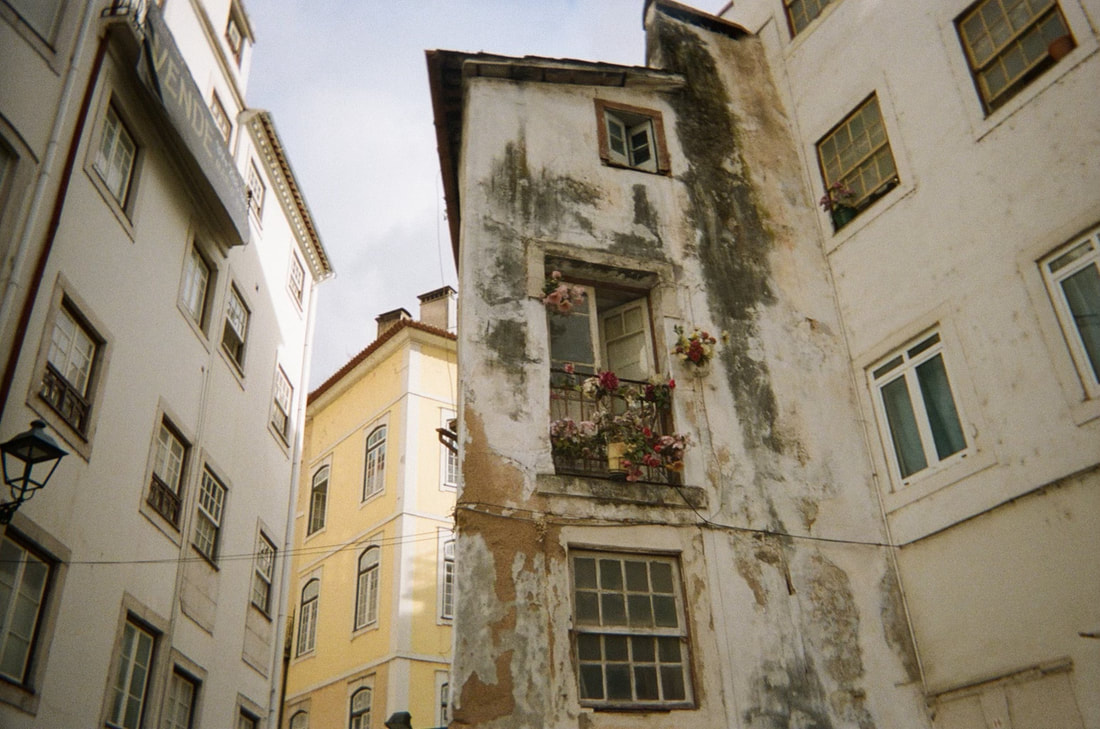
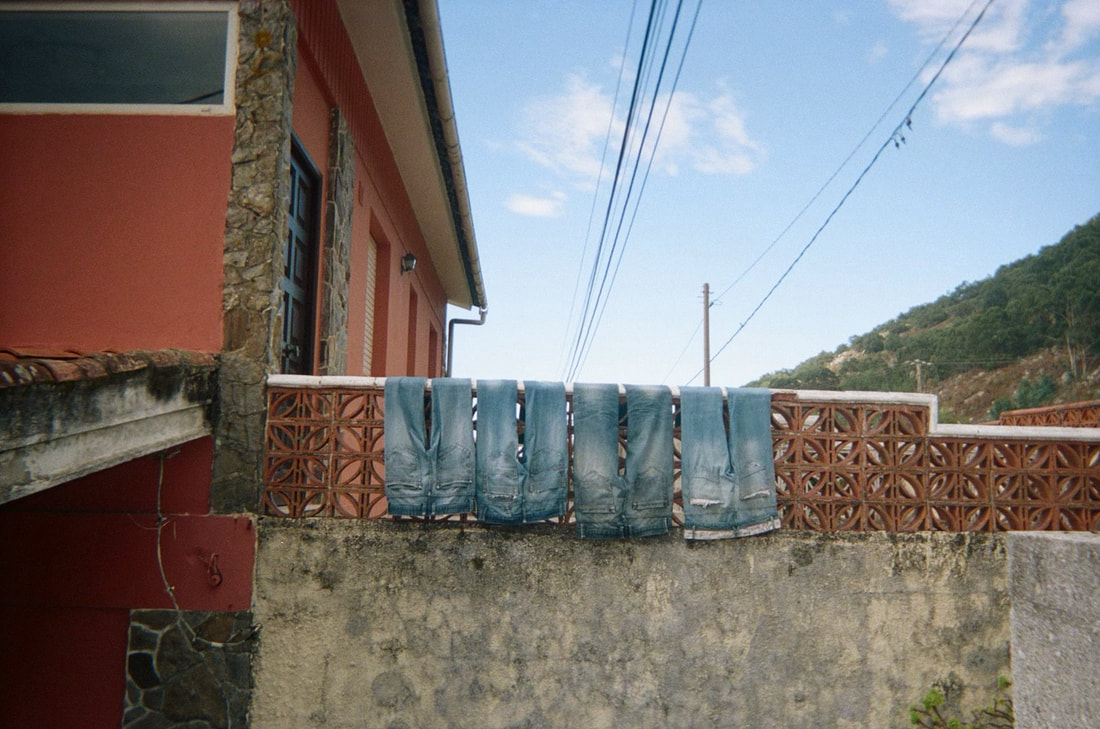
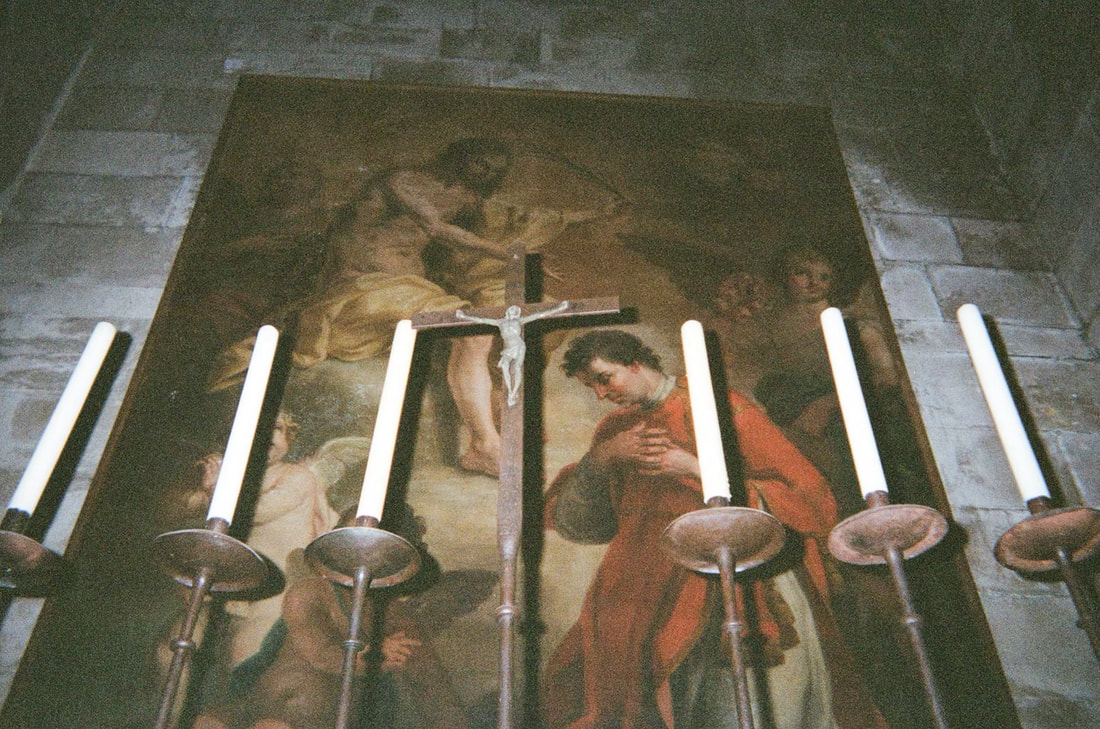
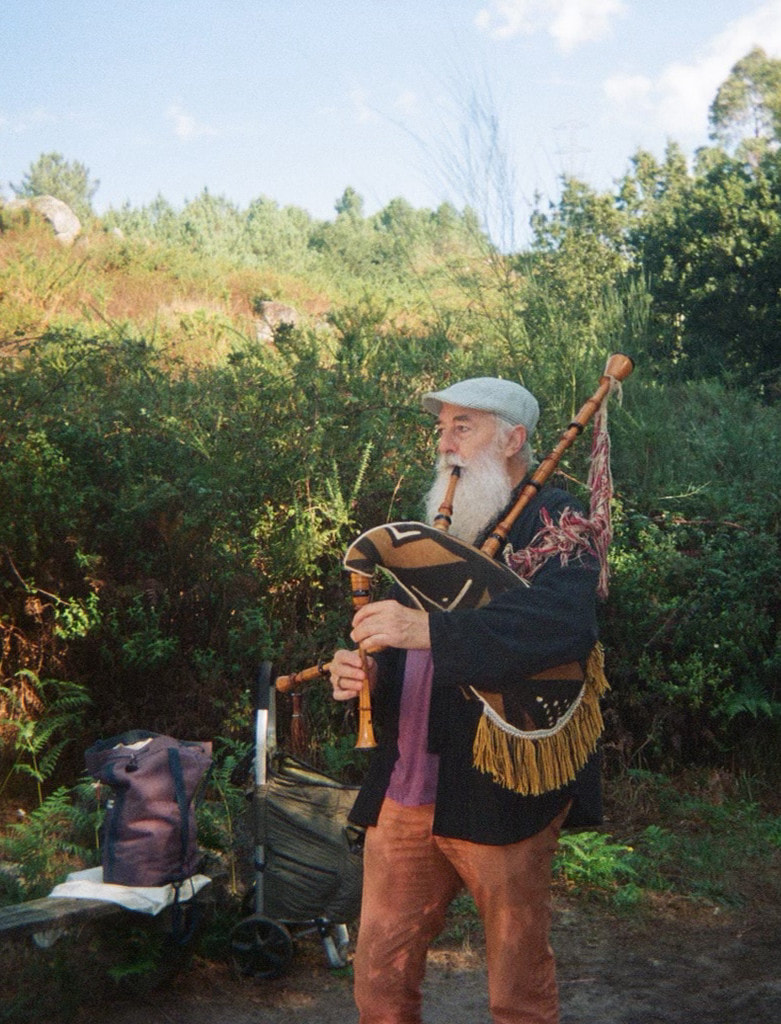
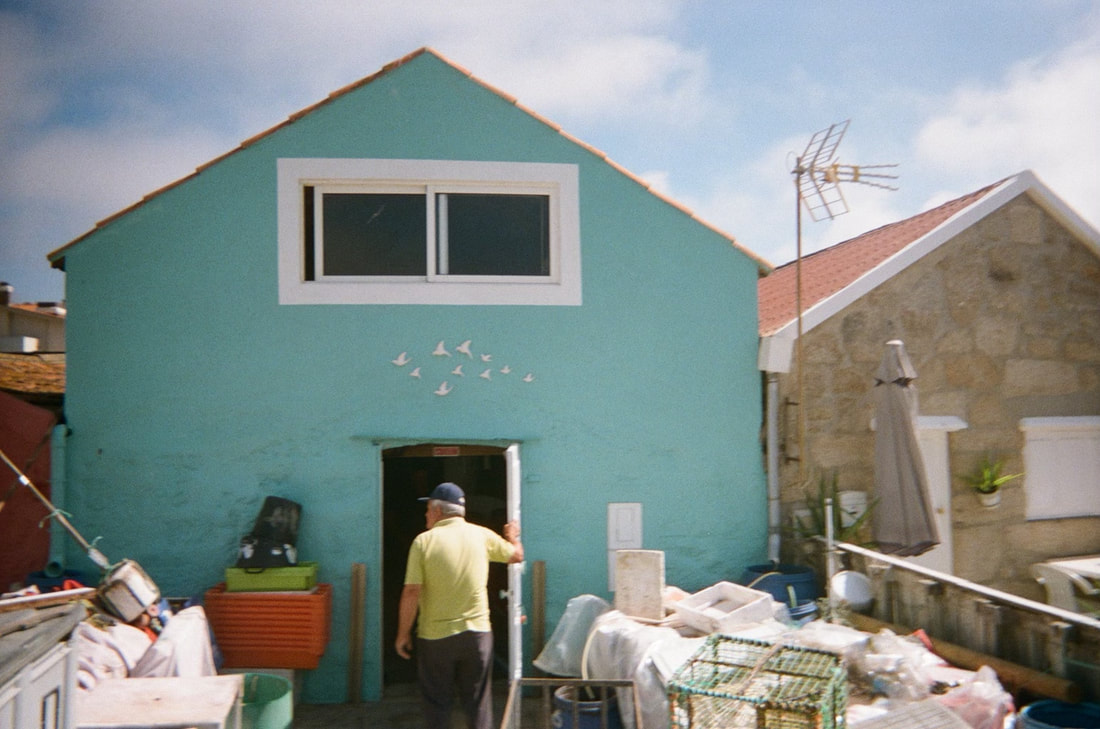

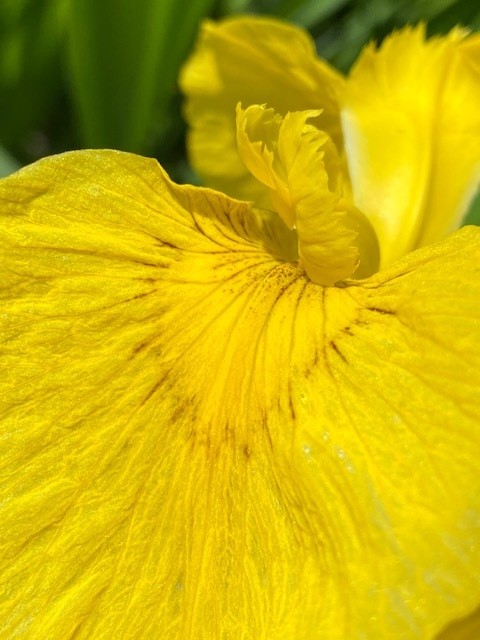
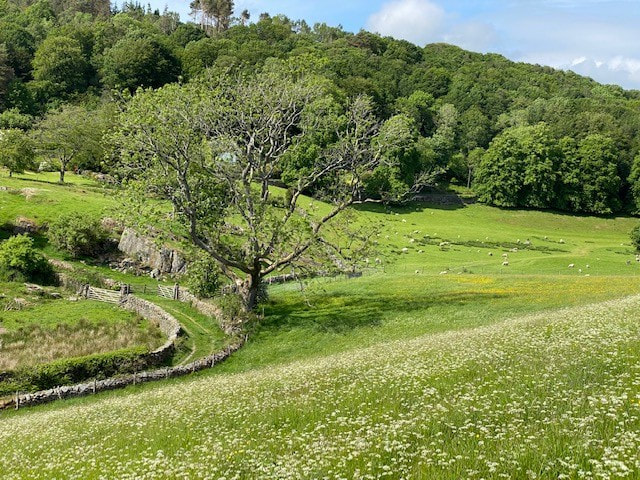

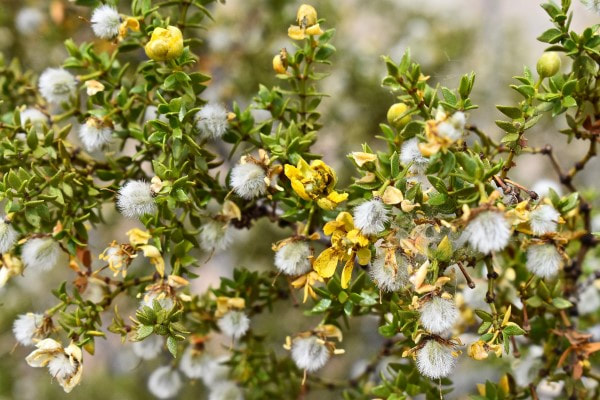
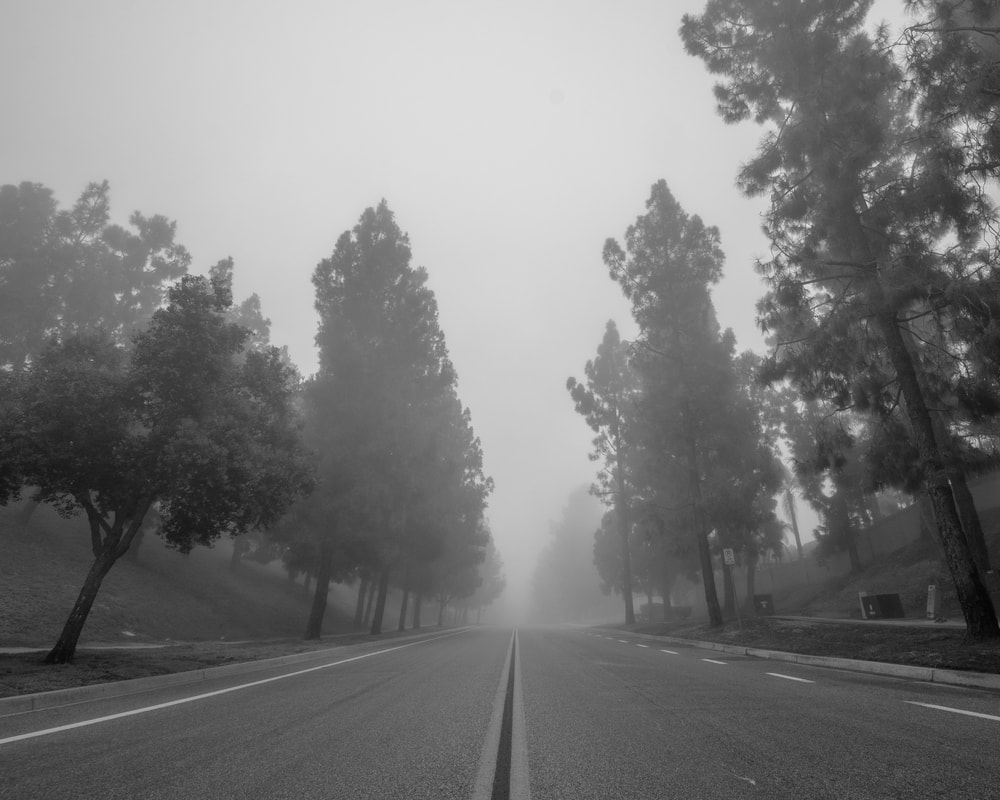
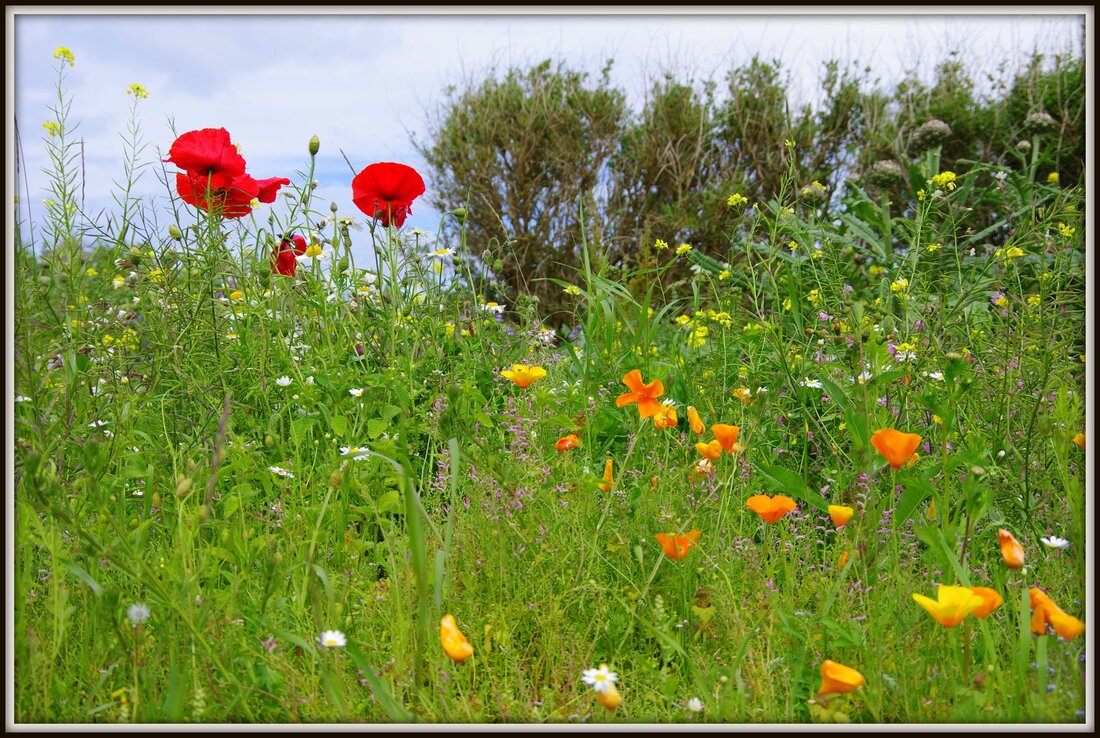
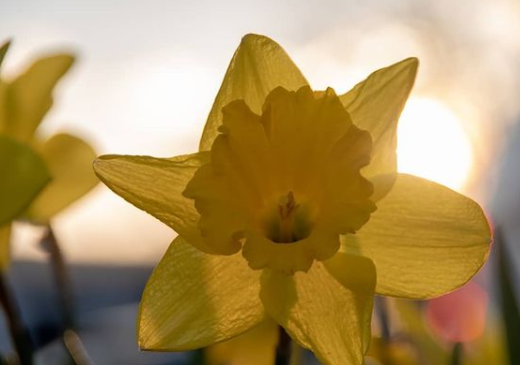

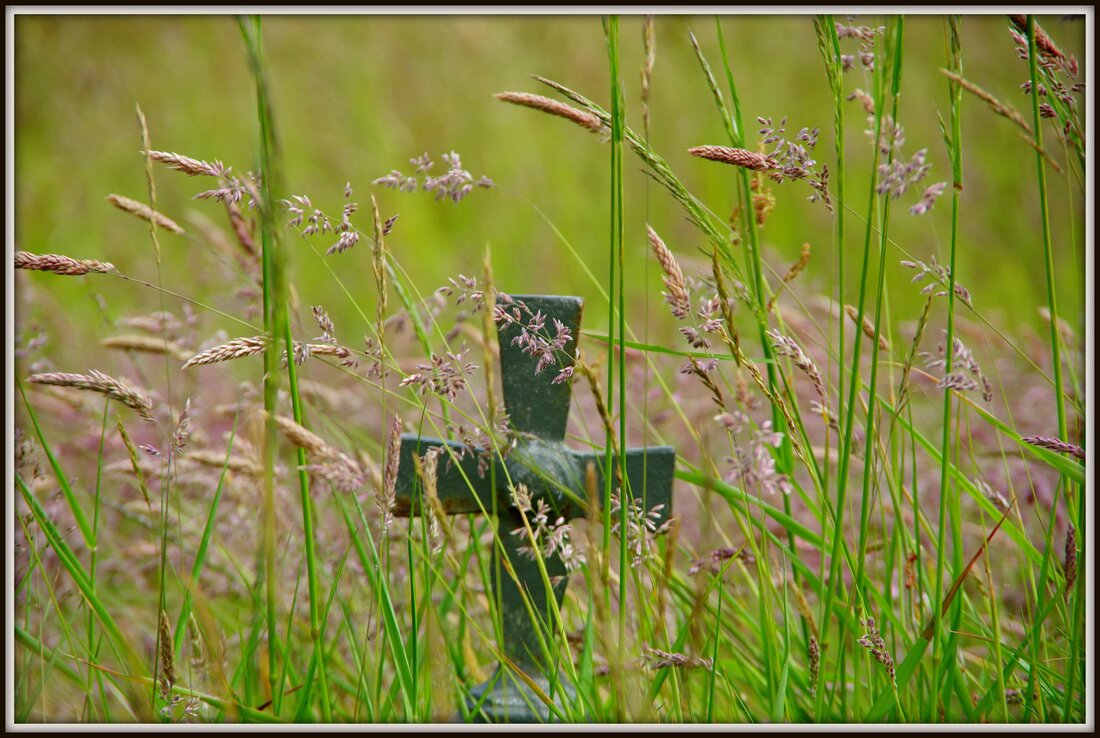
 RSS Feed
RSS Feed
